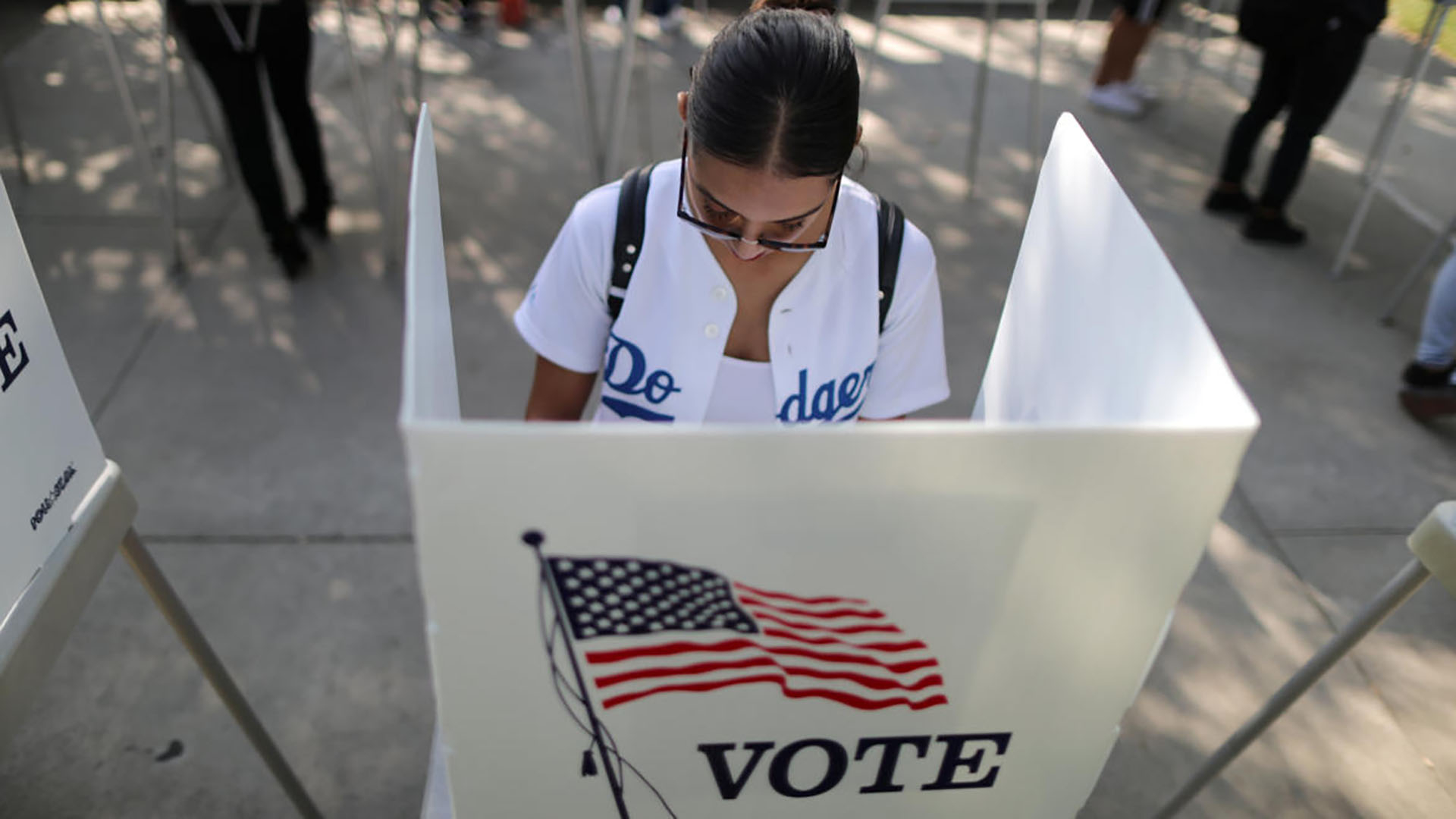
Politics
10:51, 31-Oct-2018
US election vulnerabilities stir up concerns as midterms near
Updated
10:52, 03-Nov-2018
By Jim Spellman
02:46

As the US midterm elections approach, there are new concerns that the voting system could be vulnerable to hacking and outside influence.
Voting in the US is handled at the state level using various methods: paper ballots, punch cards, and electronic voting machines. Results are tallied mainly by computers, raising fears the election is vulnerable to hacking.
Some of the states that still rely on the old-fashioned, paper ballots are considered the safest. States that depend on computers connected to mainframes are sweating it. There is a lot of inconsistency in whether the federal government has reached out to the states about how they can protect themselves. "I think they're all very very nervous,” Douglas Smith, former assistant secretary of Homeland Security, one of the agencies that protect US voting systems, said.
US officials say the voting system appears to be secure, at least from computer-based attacks.
"We haven't seen certainly any compromises or any sort of access to election equipment across the United States at this point,” said Chris Krebs, under secretary for the Department of Homeland Security's National Protection and Programs Directorate.
There are also fears that voters could be influenced by foreign misinformation. US intelligence agencies concluded Russia interfered in the 2016 presidential election by leaking hacked emails and spreading the fake news on social media, all aimed at helping Donald Trump. Russia denies involvement and Trump has been reluctant to accept Russia played a role in his victory.
In the closing weeks before the midterms, US officials charged a Russian woman with attempted election interference. They alleged she managed the finances of an effort designed to stoke political division in the US through social media posts. She denies it.
The Trump administration has also claimed China is meddling in the US elections, without providing evidence. China says it never interferes in the internal affairs of other countries. Facebook and Twitter say they have seen no interference from China.
Twitter has set up an “elections integrity” page and shut down thousands of accounts alleged to be linked to election interference.
Facebook has established a “War Room” to monitor posts in real time, hoping to shut down malicious accounts before they can spread misinformation.
"We have been hard at work for the last two years to make sure that we're far more prepared than we were then in 2016,” Samidh Chakrabarti, head of Civic Engagement at Facebook, said.
New challenges are surfacing from AI driven technology like Deep Fake, computer technology that can make incredibly realistic, fake videos. Authorities worry fake videos like this could be used to create a new kind of “fake news.”
The US Congress has explored legislative fixes, but so far no major laws or rules have been put in place to protect the electoral process from outside interference.

SITEMAP
Copyright © 2018 CGTN. Beijing ICP prepared NO.16065310-3
Copyright © 2018 CGTN. Beijing ICP prepared NO.16065310-3